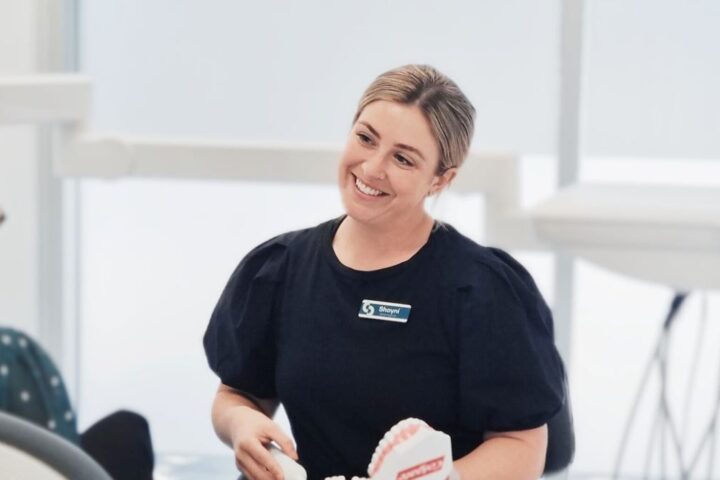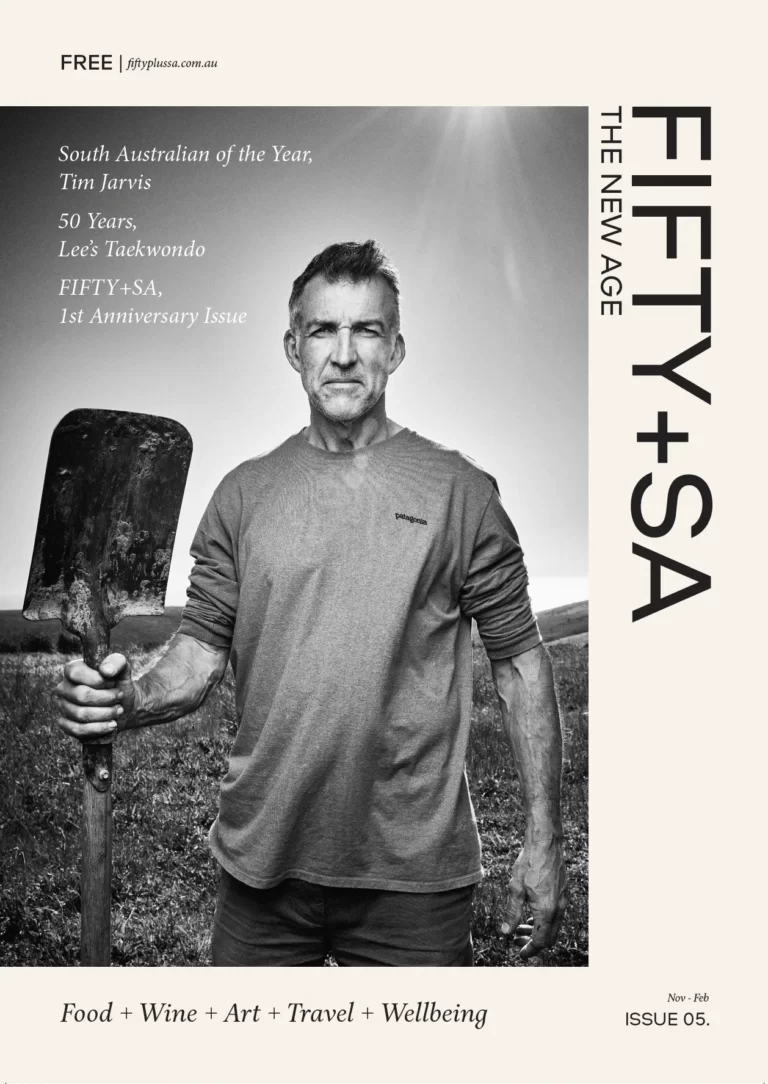What if we could predict how long and healthily we’re on track to live? And know how to improve our prospects?
That’s the idea behind the science of autophagy, the body’s process of recycling junk from cells, which is responsible for keeping us young.
For the first time, autophagy is being measured in humans using a blood test developed by neurobiologist Dr Tim Sargeant and his team at the South Australian Health and Medical Research Institute (SAHMRI).
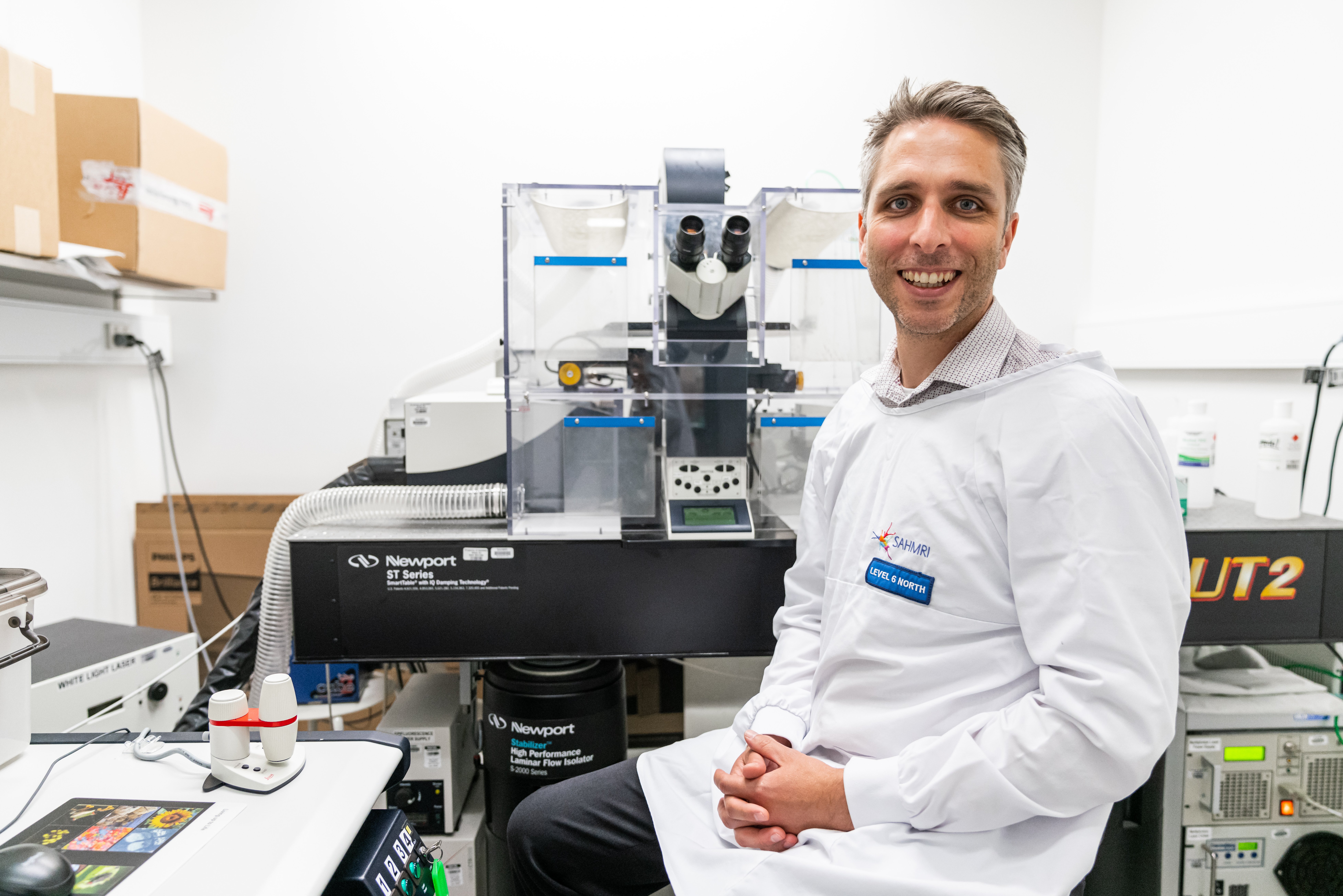
The efficiency of your autophagy could indicate healthy ageing; the theory is that the faster your body recycles its cell junk, the better.
Researchers have started measuring the process, studying the response to changes in diet, chronic disease and ageing.
“In the next year, we expect results showing how autophagy is impacted by ageing and how it’s influenced by eating fewer calories and fasting. We’re also looking at how it functions in people with heart disease,” Dr Sargeant said.
The word autophagy means “to eat yourself,” and the process is the body’s quality control system with the capacity to draw on emergency nutritional support.

“The cells in your body that make up your tissues can detect dysfunctional machinery within themselves. They label the broken down machinery and destroy it via autophagy,” Dr Sargeant said.
“Autophagy also plays a vital role in nutritional support. If you’re starving, autophagy is part of what’s keeping you alive because your body is made up of nutrients, and autophagy can access those nutrients when there’s no food around.”
Changes to exercise and nutrition affect autophagy in animals but proving this in humans is a different proposition.
Dr Sargeant says autophagy could eventually mean we can easily determine what we should eat and how much to exercise to increase our quality and length of life.
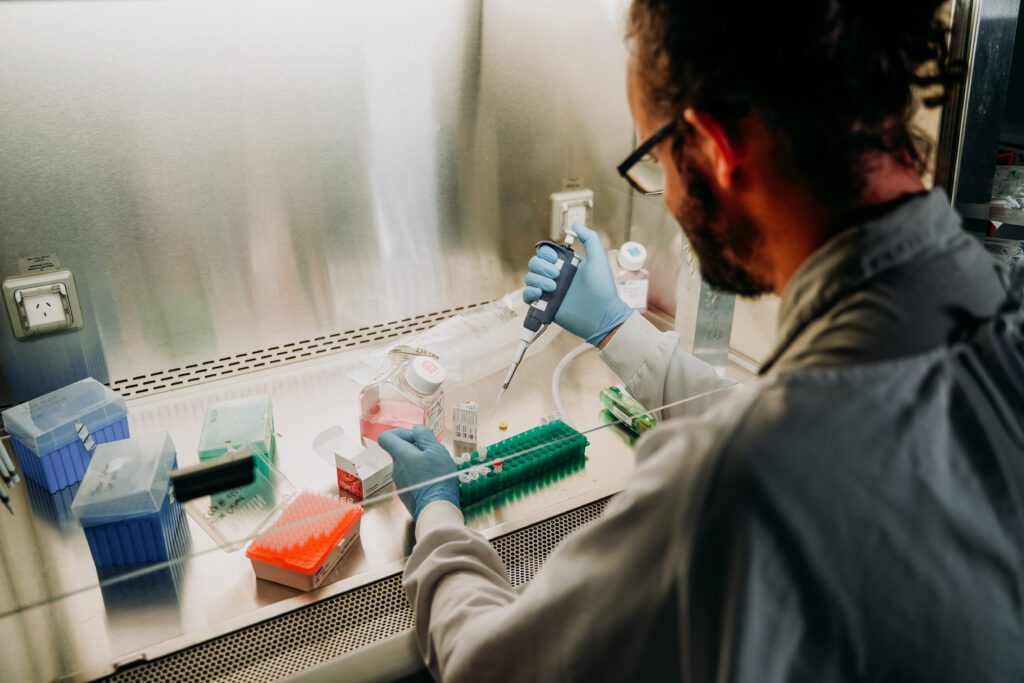
The team at SAHMRI’s Hopwood Centre for Neurobiology is also confident it’s on the cusp of measuring autophagy in the brain.
“We’re working on calculating how an individual’s autophagy is functioning in their brain. That’s going to be significant in helping us understand more about neurological disorders like dementia and Parkinson’s disease and potentially develop treatments,” Dr Sargeant said.
“Fortunately, we work at SAHMRI, which has allowed us to apply our research to real people. Fast-tracking results that’ll hopefully soon bring about changes to healthcare, meaning you stay healthier for longer.”
Currently, the blood test to measure human autophagy has some limitations. The turnaround time for results is slow, and the blood needs to be analysed within a narrow time frame while still fresh. That means it can’t be scaled to service millions of people.
Dr Sargeant says honing in on biological markers could streamline the process.
“We’re trying to identify specific molecules that can measure autophagy and simplify the process. In the not-too-distant future, we hope to get a read on someone’s autophagy in minutes through a finger prick test similar to that currently used to measure blood glucose in people with diabetes,” Dr Sargeant said.
“In the medium term, our aim is for you to be able to go into your doctor’s office and get your autophagy tested as part of your general health check-up.”
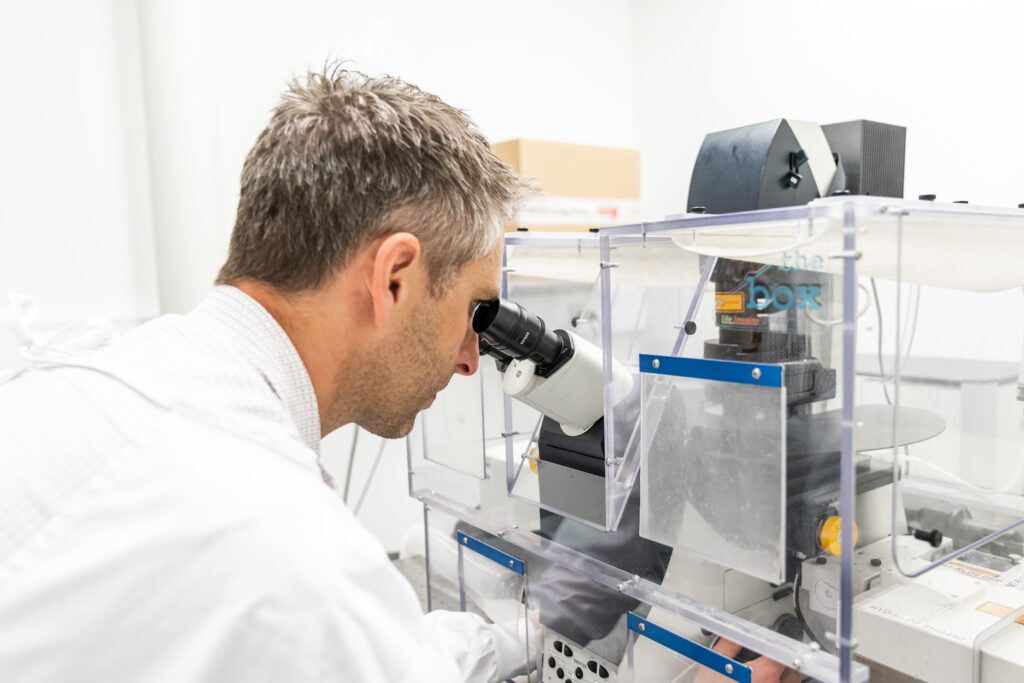
Autophagy is a new frontier in healthy ageing, and researchers plan to measure it in people living with all manner of health idiosyncrasies over the coming years.
“It touches us all. Everyone knows someone who’s died of either dementia, heart disease, or cancer, and many of us worry about what will happen to our parents.”
This emerging area of research appears to have limitless potential, and Dr Sargeant says current discoveries are just the tip of the iceberg.
“If we can nail down exactly what causes the process to stop and start and when this occurs in all kinds of contexts, I think we’ll make huge strides towards creating life-changing interventions for people living with many different conditions,” Dr Sargeant said.
“I want my children to live in an even more amazing world than we live in. If we continue to invest in science, work hard and believe in what it can deliver, we can make it happen.”
“SAHMRI is at the forefront of that push, and people in South Australia and beyond must know about the work we’re doing here because there’s nowhere else quite like it.”
The team is recruiting local participants for various autophagy-based studies in 2023. Visit the SAHMRI website for more details.








